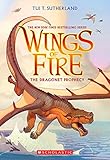Meta links courtesy of Caitlin Bianchi, Williston Central School
The Journey to Excellent: Scotland
Thinking and Metacognition: Carroll McGuinness (7 Minutes)
An excerpt from the Transcript
Transcript (Three Stages: Plan, Monitor, Evaluate)
There is another kind of thinking that has been increasingly recognised as being important in this effort to teach thinking. And it’s a thing we call metacognition or thinking about the thinking, because as well as doing the thinking all of those good things that I have outlined – we also have to recognise that we are doing it. And we are back to trying to be able to use those ways of thinking in new contexts. And unless those ways of thinking are made fairly visible and explicit to us – either just after we have done it or while we are doing it, we may not even know we have done it. So, therefore, we are not equipped to use it again in a new context, and that is really what this thinking about thinking is for.
http://www.journeytoexcellence.org.uk/videos/expertspeakers/metacognitioncarolmcguinness.asp
******
Metacognition: Stephen Heppell (3 Minutes)
Follow Stephen Heppell’s views as he explores how metacognition can help a young person to become a co-producer and explorer of their learning, rather than a consumer.
http://www.journeytoexcellence.org.uk/videos/expertspeakers/metacognitionstephenheppell.asp
******
Dyland William: Metacogntion (2.5 minutes)
Watch Dylan Wiliam talk about the importance of young people being able to reflect on their learning and how teachers can utilise these insights.
http://www.journeytoexcellence.org.uk/videos/expertspeakers/metacognitiondylanwiliam.asp
******
Note that this last video focuses on the affective dimensions of “Metacogntion” sometimes referred to as “Hot Cognition” (more later)
Dyland Williams: Learning About Learning : Self-Efficacy(2 Minutes)
Hear Dylan Wiliam describe the impact and the dangers of implementing strategies aimed at raising the self-esteem of young people without increasing their self-efficacy.
http://www.journeytoexcellence.org.uk/videos/expertspeakers/selfefficacydylanwiliam.asp








